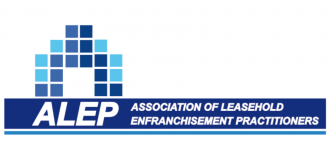 The Association of Leasehold Enfranchisement Practitioners’ (ALEP) Annual Conference, which returned with a fully virtual format for the second year running, has now concluded.
The Association of Leasehold Enfranchisement Practitioners’ (ALEP) Annual Conference, which returned with a fully virtual format for the second year running, has now concluded.
The four-day conference featured a number of different online seminars, talks and panel sessions all aimed at tackling issues impacting the leasehold enfranchisement sector.
Leasehold issues have continued to generate headlines throughout 2021, including the recent decision by a number of housebuilders to take action on unfair ground rents, along with continued consideration of commonhold as an alternative option to leasehold. This year’s conference covered these topics, with sessions focussing on ground rents, commonhold and the role of human rights in leasehold reform.
Split into morning sessions for junior practitioners and afternoon sessions for all delegates, ALEP Conference Week was attended by in excess of 200 delegates over the four days.
The sessions were introduced by ALEP director Mark Chick, who said: “Conference week has provided our delegates with interesting content, and fostered discussion and debate about the issues and challenges they face in their respective professions.
“This year we were treated to an outstanding line-up of speakers who provided insights on the key topics and trend, not only in leasehold enfranchisement, but also the wider property sector.”
The comprehensive programme commenced with a panel discussion on the impact of proposed changes to ground rents. Mark Chick, Mark Wilson and Clive Scrivener were joined on the panel by Fiona Haggett, head of valuation and Mortgages at Barclays, who outlined what constitutes an ‘onerous ground rent’, what the Council of Mortgage Lenders guidance says about this, and provided insight into how lenders are responding to it.
The second session featured a number of industry experts who discussed their personal views on the progress of Commonhold and the items that need to be addressed to make it a workable solution for the future of flat ownership in the 21st Century.
Meanwhile the third session, led by Zoe Leventhal from Matrix Chambers explored the potential for human rights legislation to affect the potential scope for reform. The final conference session featured Anthony Radevsky and Tamsin Cox from Falcon Chambers who provided an overview of cases that have made headlines in 2021 and updated delegates on the steps being considered to reform leasehold legislation.
Chick added: “We are delighted that this year’s virtual conference was so well attended once again and prompted some lively discussions and debates watched by over 200 delegates online. The online format allows us to present a more conversational feel to our sessions but we plan to hold our spring lecture ‘in person’ which will provide much needed opportunities to network and socialise.”


Comments are closed.